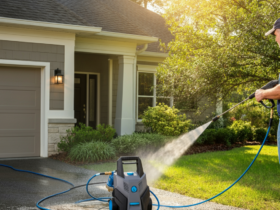Efficient heating systems are vital for the smooth operation of commercial establishments. Whether you manage an office building, manufacturing facility, hospital, or educational institution, the right boiler plays a crucial role in maintaining comfort and functionality. When existing equipment becomes outdated or malfunctions, timely installation or replacement becomes necessary. This article delves into the importance, process, and key considerations of commercial boiler installation and replacement.
Importance of a Reliable Boiler System
A dependable boiler ensures consistent indoor temperatures, promotes energy conservation, and supports business continuity. Older systems can consume excessive fuel, contribute to rising operational expenses, and compromise safety standards. Introducing a new unit offers improved performance, lower emissions, and reduced maintenance demands.
In sectors where heat and hot water are indispensable—such as hotels, restaurants, and healthcare centres—system reliability becomes even more critical. Investing in a high-efficiency model can dramatically enhance building performance and reduce utility expenditures.
Signs You Need a Replacement
Determining whether to repair or replace a system depends on various indicators. Here are common signs that suggest it’s time for a new boiler:
- Frequent Breakdowns: Repeated service calls indicate declining functionality.
- Escalating Energy Bills: Older units typically use more fuel.
- Unusual Noises: Banging, clunking, or hissing sounds may signal internal damage.
- Inconsistent Heating: Uneven temperature distribution across zones could suggest failing components.
- Visible Corrosion: Rust or water leaks point to structural issues.
- Age of the Equipment: Systems beyond 15-20 years may no longer be cost-effective.
If your current unit shows multiple signs from the above list, replacement may be more economical than continued repairs.
Choosing the Right Boiler
Selecting the appropriate system involves evaluating your building’s needs and operational goals. Factors to consider include:
- Capacity Requirements: Assess the total heating load and hot water demands.
- Fuel Type: Options include natural gas, oil, propane, biomass, or electric models.
- Energy Efficiency Ratings: Look for units with high AFUE (Annual Fuel Utilization Efficiency) scores.
- Emissions Compliance: Choose eco-friendly systems that adhere to regional environmental regulations.
- Scalability: Modular boilers allow flexibility in expanding capacity without significant disruption.
- Installation Space: Evaluate physical constraints and access points for seamless setup.
A local professional plumber can help you determine the most suitable model based on your building’s layout and specific requirements.
The Installation Process
Implementing a commercial boiler involves several critical steps that ensure operational safety and optimal performance. Here’s a general overview of the process:
- Site Assessment: Technicians conduct a comprehensive evaluation of your facility to measure space, load capacity, ventilation, and infrastructure compatibility.
- System Design: Engineers design a custom heating solution tailored to your property’s size, occupancy, and usage patterns.
- Removal of Old Equipment: If replacing an existing unit, technicians dismantle and dispose of the outdated machinery following safety protocols.
- Piping and Connection Work: Proper integration of water lines, flues, gas supply, and controls is essential to ensure smooth functioning.
- System Installation: The new unit is installed and secured in place, adhering to local building codes and manufacturer guidelines.
- Testing and Commissioning: Once setup is complete, professionals test the entire system for leaks, pressure levels, and operational performance.
- Training and Handover: Facility managers are briefed on operation procedures, maintenance schedules, and troubleshooting tips.
Advantages of Replacing an Outdated Boiler
Upgrading your system brings a host of benefits, including:
- Energy Cost Reduction: Modern systems consume less fuel, lowering overheads.
- Improved Reliability: New units offer stable performance with fewer disruptions.
- Enhanced Safety: Advanced models include features like pressure monitoring, automatic shut-off, and fault alerts.
- Eco-Conscious Operation: Lower emissions contribute to sustainability goals and reduce your carbon footprint.
- Smart Controls: Integration with digital thermostats and remote monitoring improves operational efficiency.
Maintenance and Longevity
Post-installation, regular plumbing maintenance (nf) ensures continued system health and longevity. Routine checks should include inspecting pressure levels, cleaning burners, testing safety valves, and reviewing electrical connections. Annual service by certified technicians will help prevent unexpected malfunctions and extend the system’s lifespan.
Final Thoughts
Commercial boiler installation or replacement is a significant investment that directly impacts building efficiency, employee comfort, and operational continuity. Making informed choices based on expert advice, energy consumption goals, and future scalability needs will ensure long-term value and performance.
Whether replacing an aging unit or planning a new installation, partnering with experienced professionals is essential. Their knowledge and skill ensure the system is functional and aligned with safety standards and business priorities. A well-installed boiler system is more than a heating solution—it’s an asset to your facility’s infrastructure and sustainability objectives.






Leave a Reply